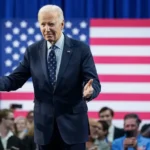
Published February 22, 2024
Arizona lawmakers will be scouring the budget for savings to close the newly emerging budget gap. The big institutions that receive the bulk of state money will be sure to swarm the Capitol with lobbyists and advocates to defend their appropriations. Small recipients likely don’t have that arsenal to defend themselves and are hence likelier to fall prey to the budget ax.
One such tiny entity deserves a broader hearing and exemption from the carnage to come: Arizona State University’s School of Civic and Economic Thought Leadership, or SCETL.
In just a few short years, SCETL has become the little engine that could, punching far above its weight on campus and becoming a model for university reform nationwide. The Legislature would be very short sighted if it put this small school on the chopping block.
SCETL was founded in 2017 when the Legislature appropriated targeted funds to establish a new school at ASU. It was intended to offer courses grounded in classical learning and economics that were not capable of being offered in traditional departments. It offers its own degrees and tenures its own faculty, giving it independence from the reigning departmental dogmas that often smother intellectual diversity.
This small seed has grown into a strong tree in the ASU forest. Its curriculum is as distinct as originally envisioned, giving students the opportunity to dive deeply into the classic works of Western philosophy. Courses on just war theory are of especial importance in today’s violent world, and classes exploring the Hindu, Islamic, and Confucian world views provide wide exposure to global thought. It is far from the myth of right-wing teachers forcing dogma down students’ throats.
SCETL also offers lectures and conferences that explore difficult topics from a range of viewpoints. Its annual Martin Luther King, Jr. Day lecture, for example, has exposed students to a variety of views about race and America over the years. Its robust Civil Discourse Project extends this to a variety of topics throughout the academic year. The result is what universities often preach but too often don’t practice: Genuine exposure of competing views on sensitive topics that are handled in a civil and polite manner.
These virtues fit nicely into ASU’s broader mission to become the “New American University.” ASU defines that as being a “comprehensive public research university, measured not by whom it excludes, but by whom it includes and how they succeed.” SCETL includes students, faculty, and members of the broader community who crave this open and civil discussion of controversial topics who would otherwise not have a place or voice at the state’s largest public university.
It moreover fulfills the traditional purpose of such institutions going back to Thomas Jefferson’s creation of the University of Virginia. Jefferson believed that publicly funded education was necessary for a free republic as it would allow learning to be shared with all regardless of background or family wealth. Such a university, he believed, would “form the statesmen, legislators and judges, on whom public prosperity and individual happiness are so much to depend.” SCETL’s focus on classical learning, with an emphasis on politics and philosophy, is a perfect example of Jefferson’s original vision and as such is an “oasis of excellence” in the Valley of the Sun.
SCETL’s success has been noticed around the country. Eight states now offer departments, programs, or separate schools at state universities modeled in large part after SCETL. Texas, North Carolina, Florida, and Ohio are just a few of the places where SCETL’s example will enrich more students’ lives.
I discovered SCETL’s charm firsthand during a semester in residence as a visiting fellow. The students I taught were smart, inquisitive, and definitely not lockstep in their thought. They were hungry for serious thought and devoured the texts their teachers assigned. My classroom discussions were lively as they seriously engaged with the readings and the ideas they proposed. It was as delightful a teaching experience as I have had anywhere.
Eliminating SCETL’s funding, or permitting ASU to do so, would rob Arizonans of this nationally influential font of learning. It would upend many students’ lives as their degree programs were shaped by SCETL’s curriculum. It would also make national news, as it would be viewed by some – particularly on the political right – as a hostile act against recent innovations launched by conservatives to reform higher education. It cannot be in Arizona’s interests to see students and its largest university hurt so much to save so little.
The state’s entrepreneurial educational venture has succeeded beyond anyone’s reasonable hopes. Any sensible venture capitalist will tell you to fund success, not starve it. Arizona should follow that sane advice and let SCETL flourish.
Henry Olsen, a senior fellow at the Ethics and Public Policy Center, studies and provides commentary on American politics. His work focuses on how America’s political order is being upended by populist challenges, from the left and the right. He also studies populism’s impact in other democracies in the developed world.









